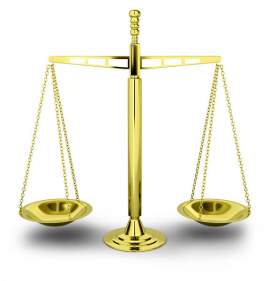
All You Need to Know About Criminology Courses

Criminology Defined
Criminology refers to the scientific study of the causes, nature, extent, and overall control of criminal behavior. This field was created to view these characteristics of crime in both the individual and a broader societal sense.
Criminology is a subcategory of science within the behavioral sciences family. Areas of research in the field include: causes and consequences of crime, social and governmental regulations and the reaction to crime, and incidence.
As a social science, the field of criminology is concerned with not only the causes and preventions of crime, but also the social impacts and subsequent reactions to crime. Criminologists will typically evaluate what exactly prompts or motivates someone to engage in an illegal action.
Those involved within the field of criminology typically work with law enforcement agencies, either on a local or national level, to develop profiles and trends. These formulas are then used by law enforcement agencies to help predict and subsequently prevent crime from occurring.
The field of criminology develops theories to suggest why crimes are committed. The most popular theories inspect the classical, positivist, and individual aspects. The classical theory of criminology believes that people commit illegal actions when they perceive that the benefits of their crimes outweigh the possible punishments or costs. Through this theory, the logical solution to further prevent crimes from occurring would be to provide harsher punishments for illegal actions.
The positivist theory of criminology states that crime is created through both internal and external factors that are present outside of an individual’s control. The individual trait theory suggests that the biggest factor in distinguishing criminals from functional members of society is biological and psychological traits.
What are Criminology Courses?
Criminology Courses are the educational courses needed to obtain a degree in the field of criminology. A student taking criminology courses will study the relationship between society and unlawful behavior, as well as the causes of criminal activity from a social and economic perspective. Those scholars who focus on crime and the punishments attached to illegal actions do so within a department of law, psychology and sociology.
The initial criminology courses that an individual will take represent an overview of the practices and theories of the field, including various social, cultural, political and economic influence of crime.
Students involved in these criminology courses will read case studies for famous crimes and examine the inner workings of the United States criminal justice system. Introductory criminology courses are predominantly designed to give students an impression of the general scope of the program and aid them to focus their attention on more specialized areas within the subject.
Law Enforcement Criminology Courses
Criminology courses that focus on the specifics of law enforcement and incarceration will evaluate the conditions of the prison complex and the experiences of convicted individuals. Students enrolled in these criminology courses will often debate the financial cost of housing criminals in prison and evaluate the various alternatives to incarceration. In addition, students will look at the evolution of criminal law and how it can be applied within different contexts.
NEXT: Criminal Justice Colleges





















